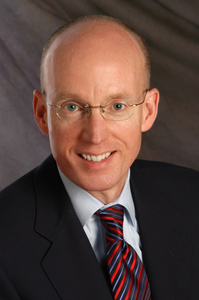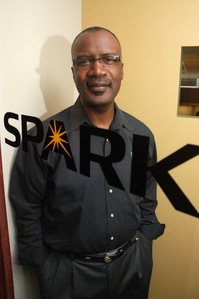Eliminating parochialism is critical to Michigan's economic recovery
Parochialism is poison to economic development.
That's why it’s encouraging to see organizations like Ann Arbor SPARK, the University of Michigan and Ann Arbor resident Doug Rothwell’s Business Leaders for Michigan actively seeking to unite the state’s disparate regional economic development efforts.
That’s not to say that everyone’s embracing unity, of course. But I
get the sense that Michigan is close to discarding its historical
tensions: Detroit versus the suburbs, western Michigan versus eastern
Michigan, and others. We can’t afford to cling to dysfunctional
behavior.

Business Leaders for Michigan CEO Doug Rothwell
I’ve argued before that the most disturbing legacy of Michigan’s
economic collapse is the effect it’s had on the state’s brand. Michigan
is haunted by its global image: an unfortunate mix of abandoned
warehouses, reckless corporate giants and political squabbling.
Yet we have a chance to slowly reverse that image. And it starts with unity.
Michael Finney, CEO of SPARK,
has emphasized the importance of recognizing that Michigan’s regional
destinations need to recognize that intrastate squabbling won’t get us
anywhere.
“Where there are opportunities to be supportive of each other, we
should be, as opposed to fighting to keep one project going to another
community,” Finney said.
The growth of each individual community in Michigan generally boosts
the state’s brand - and improvements in the state’s image affect all of
us.
Here’s a concrete example: The city of Holland on Michigan’s west
coast is quickly becoming an epicenter for electric vehicle battery
production.
Holland has landed two major battery plants over the last year: A
$220 million project by Johnson Controls-Saft and a $303 million
project by Korean firm LG Chem, which is supplying lithium cells to
General Motors for use in the Chevrolet Volt.
Holland’s success accelerates Michigan’s efforts to earn a label as a global leader in battery technology and production.
As Michigan builds awareness for its capabilities in the battery
sector, every region wins. Ann Arbor, for example, has much to gain.
Established battery firm A123Systems and U-M battery
startup Sakti3 are among several companies relying heavily on the
region’s alternative propulsion talent.

Ann Arbor SPARK CEO Michael Finney
As the state adds battery materials suppliers, local companies reap
benefits, because a shorter distance means lower transportation costs
and more collaborative opportunities.
U-M, for one, recognizes the importance of acknowledging the economic impact of the west side of the state.
The U-M Board of Regents on Thursday will host its monthly meeting
at the Amway Grand Plaza Hotel in downtown Grand Rapids. The university
has 1,112 students from Kent County, 613 from Kalamazoo County and 403
from Ottawa County.
Those students may not stay in Ann Arbor - but their impact on Michigan’s economic revival will ultimately benefit this region.
Obviously we’d like to keep those students in Ann Arbor. Similarly,
it would be nice if every business expansion landed within Washtenaw
County’s borders.
But that’s not realistic. Instead, let’s support the
state’s recovery - and we’ll all benefit.


Comments
Theo Fandtoa
Tue, Apr 13, 2010 : 8:23 a.m.
To claim that Doug Rothwell isn't parochial belies a supreme lack of familiarity with the subject. Those who have any experience in SEM economic development know that Mr. Rothwell is first, and foremost, about "TURF". Frustrated that many in Detroit have refused to acknowledge his deity, he now seeks to win hearts and minds across Michigan. The truth is, Mr. Rothwell adopted his state-wide focus so he'd have a more sizable flock of corporate sheep to shear. The road to recovery does indeed require that we all work together, but a Rothwell-built "brand" for the state is a non-starter. It would be folly to embrace this man or his organization. More to the point, rather than following any self-anointed demiurge, let's build our regions ourselves, develop our own leadership, and work cooperatively to market the state. The mechanisms are already in-place. Have the self confidence and political will to use them.